New Zealanders will vote in a general election on 14 October. In one crucial respect, the result is a foregone conclusion. Support for the Labour government has collapsed spectacularly. The latest projections show Labour languishing in the sub-30 per cent death zone and likely to lose at least 28 of its 65 seats in the 120-seat parliament. Prime Minister Chris Hipkins, who replaced Jacinda Ardern nine months ago, seems doomed to become a footnote in New Zealand history, and a minor one at that.
The National party – the party of long-serving prime ministers Keith Holyoake, Robert Muldoon, Jim Bolger and John Key – will be restored to its traditional position as the dominant force in New Zealand politics. Since the end of the second world war, National has either governed on its own or led coalition governments for 47 years. Over the same period, Labour has been in power for 31 years. If that were a rugby score, it would be considered a convincing margin.
That said, there has rarely been a better demonstration of the adage that elections are lost by governments rather than won by opposition parties. National goes into this election under a lacklustre novice leader, still in his first term in parliament and chosen in desperation when the party was in turmoil. Christopher Luxon, a former CEO of Air New Zealand, comes across as eager to please but one-dimensional. He speaks in bloodless corporate clichés and has yet to make much impact on the public consciousness. If Luxon becomes prime minister, as seems inevitable, it will be by default.
He is arguably the ideal leader for a party that seems bereft of vision or imagination. National looks set to become the government not because its policies excite the public imagination, but for the sole reason that the country is desperate to be rid of a Labour administration that in the past year has lurched from one crisis to the next.
National’s supposed trump card is the promise of tax cuts – the soft option for a party lacking original ideas, and one for which there has been no public clamour. Given that the government accounts are in a parlous state after six years of reckless prodigality under Labour, tax cuts don’t even look economically responsible. Some centre-right commentators are asking why a party proud of its reputation for sound economic management would risk fuelling already rampant inflation by putting more cash in people’s pockets. The sensible option, they point out, would be to cut government spending.
Of course, National won’t have the luxury of governing alone. A change of government may be all but inevitable, but there remain many imponderables.
Polls show the most likely outcome after 14 October will be a coalition between National and the low-tax, small-government, libertarian ACT party. ACT (it stands for the Association of Consumers and Taxpayers) has been the big mover in recent soundings, surging to 18 per cent support in the latest Roy Morgan poll.
ACT and National are not natural bedfellows. Although both are nominally to the right of centre, there is huge scope for conflict between ACT’s free-market idealism and National’s centrist pragmatism. The differences are personified in the way the two parties’ leaders deal with the media. Luxon seems anxious to come across as the nice guy, even in the face of hostile questioning, while ACT leader David Seymour pushes back and often wins the point. In government, there is bound to be tension between a leader who seems averse to conflict and another who is disinclined to compromise.
Notwithstanding that incompatibility, a National-ACT coalition would be the tidiest election result. But even assuming an electoral rout for Labour, there remains a chance that New Zealand’s cock-eyed electoral arrangements could produce a result that allows disruptive smaller parties to exert disproportionate influence. Neither the radical Maori party nor the socially conservative New Zealand First party led by Winston Peters, the veteran spoiler of New Zealand politics, can be ruled out of the jockeying for power that has followed every election but one (the last one, which delivered Ardern a resounding majority) since proportional representation was introduced in 1996.
One thing is certain. Whoever wins power next month will have an enormous amount of damage to repair. Labour, so full of ambition and optimism three years ago, was undone by a lethal combination of administrative incompetence, financial profligacy and ideological overreach. It has created a mess that will not easily be fixed.
Some of the harm is quantifiable. Government debt has burgeoned by $97 billion over four years, inflation appears out of control, growth has stagnated and the current account deficit – the difference between what the country spends and what it earns – is the worst of all the OECD countries. Significantly, confidence in the vital farming sector is at an historic low.
Theoretically, that harm is reversible with time and good management, as are some of Labour’s spectacularly flawed attempts to transform parts of the public sector. Not so easily measurable, and probably far harder to repair, is the deleterious effect six years of Labour has had on the country’s mood.
New Zealand in 2023 is febrile, fractious and frayed. Social cohesion has taken a massive hit, starting with a Covid pandemic that had polarising consequences no one foresaw. Smouldering resentment at the overbearing enforcement of lockdown regulations divided and destabilised the country as no other event has done since the 1981 South African rugby tour. For many, it became the defining feature of Ardern’s prime ministership.
Race relations are unprecedentedly acrimonious, inflamed by a Labour-backed push for Maori co-governance that would see democratic representation elbowed aside in favour of racial preference. To that potent mix can be added an epidemic of violent crime and the corrosive effects of the culture wars – the latter principally manifested in attacks on free speech in which the government and the mainstream media have been complicit.
One thing Labour can’t be blamed for is a series of catastrophic weather events that have deepened the public mood of gloom and pessimism.
But human nature being what it is, voters are likely to punish Labour even for the things over which it has no control.
Got something to add? Join the discussion and comment below.
Get 10 issues for just $10
Subscribe to The Spectator Australia today for the next 10 magazine issues, plus full online access, for just $10.
You might disagree with half of it, but you’ll enjoy reading all of it. Try your first month for free, then just $2 a week for the remainder of your first year.

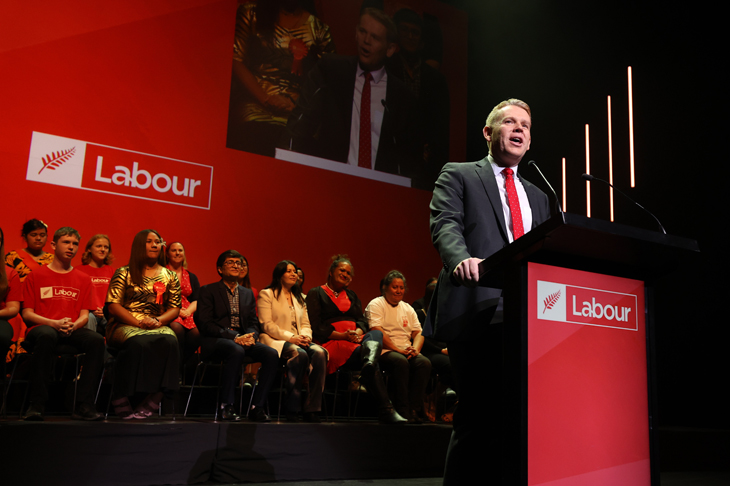
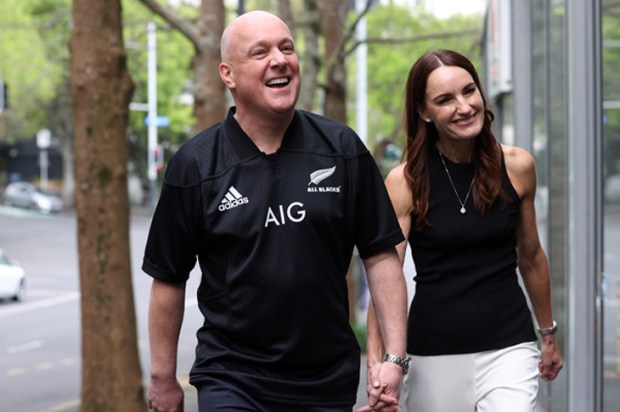
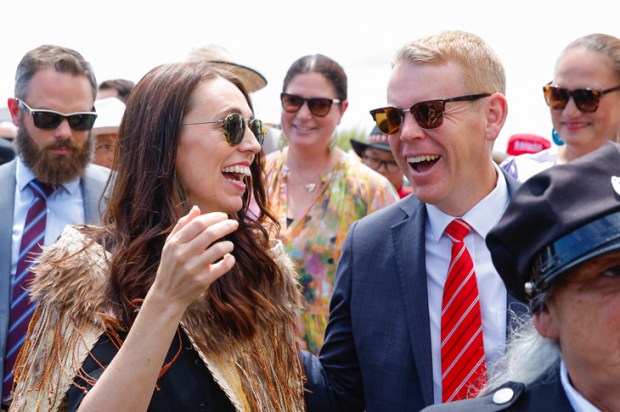
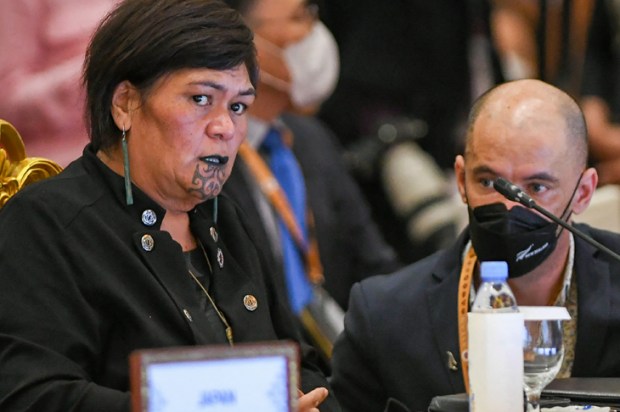
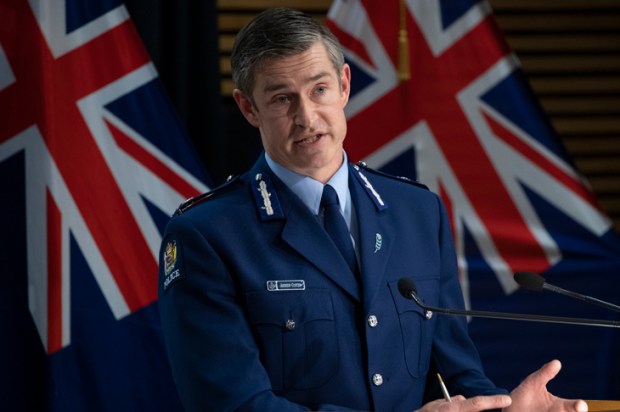

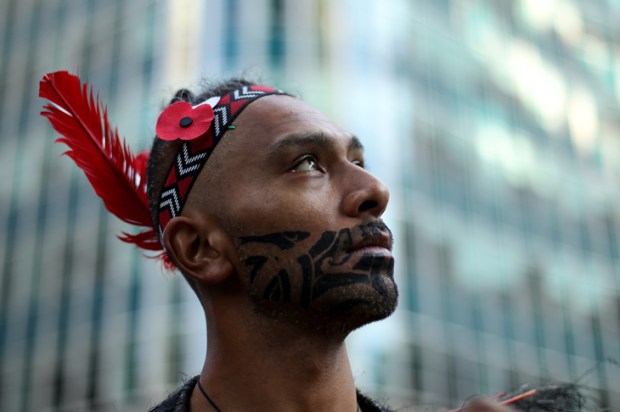






Comments
Don't miss out
Join the conversation with other Spectator Australia readers. Subscribe to leave a comment.
SUBSCRIBEAlready a subscriber? Log in